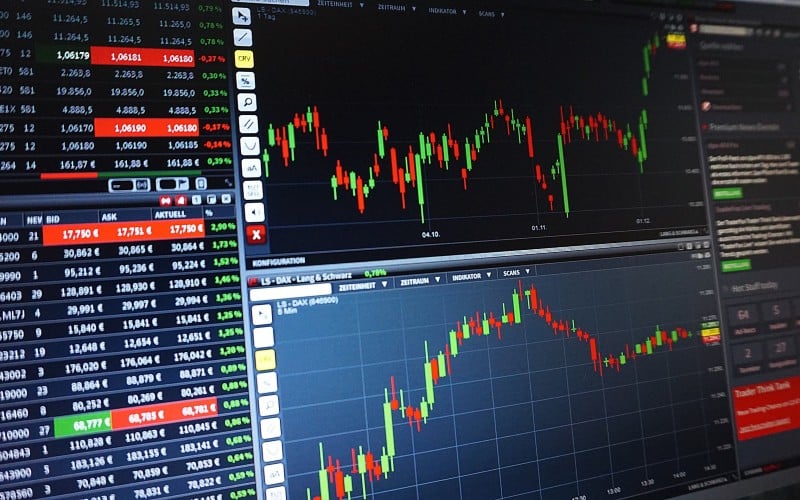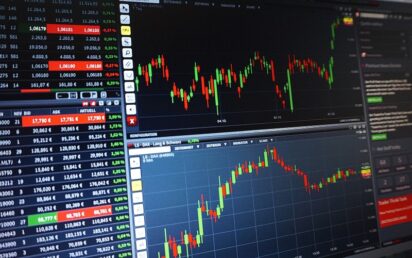Brokerage risk is the probability that the broker who provides the platform for you to access the markets – sometimes acting as a counterparty to your trades – could fail to meet their obligations to you.
Although brokerage risk exists when you trade financial instruments in centralized markets where a clearing house stands as surety, those who trade in decentralized OTC markets are more at risk.
Since you can’t eliminate counterparty risk, you can evaluate the brokerage company to determine likelihood of default.
Notwithstanding, there are also various government regulations that have been put in place to mitigate brokerage risk. For example in the EU, MiFID II regulations keep brokers in check and protect investors. Post-Brexit, the UK has retained some part of MIFID regulations.
You as a retail broker should still care about brokerage risk – and here is why:
Some Brokerages Operate Illegally
Trading with a brokerage that is operating illegally exposes you to counterparty risk, so some countries have set up regulatory bodies to protect their citizens from scams.
However, not all regulatory bodies are placed on the same ranking. A regulator like the UK’s Financial Conduct Authority (FCA), is regarded as Tier 1 since it is more thorough and strict in its regulations.
Some brokerages operating in the UK do not meet the requirements to be licensed by the FCA, and are not in for thorough monitoring, so they settle for Tier 2 regulators from other jurisdictions where regulatory oversight is less stringent.
It is advisable to use FCA licensed brokers when trading any asset class, as you can check the FCA register to authenticate the license of any broker. It’s not enough to see a Tier-1 regulator’s license number on a broker’s website.
Some brokers now go as far as cloning websites and preparing fake landing pages, to mimic honest brokers with the aim of scamming traders.
In January 2021, the FCA released a public warning about clone firms investment scams. According to the report, traders lost over £78 million to clone firms between January & December 2020.
To be sure a broker is legit, do your own research – for example, this review of Plus500 brokerage firm quickly reveals that they are regulated by 6 regulators from different countries, including the FCA. But you should do your own due diligence as well & verify these licenses via the websites of different regulators.
When a broker has multiple regulators it is a good sign, and shows they are held accountable from different jurisdictions.
Some Brokerages Expose You to Security/Data Breaches
When signing up for a brokerage, you are usually not hoping to have your personal details open to hackers. Unfortunately, brokers that don’t prioritize IT security/ISO standards, can be breached.
Hackers love to attack financial services providers, seeing that a security breach on them gives them access to money.
In 2021, a team of white hat hackers from Wizcase found a data leak on the FBS brokerage elastic server that contained lots of confidential Information. This data in the hands of the wrong people could have resulted in losses for both FBS and its customers.
In 2021, a security breach of share trading app Robin Hood occurred and the hackers leaked the personal details of over 7 million people.
The hackers were seeking to blackmail and extort money from the management of Robin Hood, in exchange for keeping the compromised data a secret. However, Robin Hood did not dance to the tune of the hackers.
Some security breaches can even result in unauthorized fund transfers from your trading account, like in the case of FXCM brokerage where unauthorized wire transfers sent the company’s shares down by 25%.
While some poorly regulated brokers don’t have very secure apps, it is good to check if a broker’s app is secure by looking out for features like two-factor authentication, biometrics, etc., before you sign up.
Brokerages Can Go Bankrupt
Multi-billion-dollar crypto exchange FTX, then headed by Sam Bankman-Fried, went bankrupt in 2022 in a case of mismanagement that shocked the world.
It is alleged that Bankman-Fried used funds from FTX to shore up another company of his, Alameda.
According to a testimony by John J Ray III, the CEO FTX debtors, there was gross mismanagement at the company under Bankman-Fried. The latter faces several counts of fraud in court later this year.
In the UK, the FCA mandates brokers to maintain a different account for holding client funds, and another for operational funds. A broker is not allowed to commingle client funds.
However scam brokers don’t always follow this rule, as they can use your money to run their office and pay salaries.
Mind you, some brokerages are operating with the sole purpose of stealing customers’ funds. They are well-strategized Ponzi schemes that use clients to market their scheme, hoping to abscond with the funds once they are discovered.
They are not licensed and already have their fake bankruptcy notice ready for use.
Conflict Of Interest between You & Your Broker
Your brokerage may have to deal with a conflict of interest between their desire to serve you and their need to make maximum profit.
Between 2016-2020, zero-commission broker Robin Hood was involved in a scandal about how it made revenue. It didn’t disclose to customers that they actually sent their orders to liquidity providers who pay them a commission per order. This practice was called Payment for Order Flow (PFOF).
For example, you place a buy order for Amazon shares for $80. The order comes back rejected with a re-quote telling you the best price is $80.54. You accept the new price and pay higher for the shares. However, the difference of $0.54 is used by the counterparty to pay your broker a commission.
PFOF questions the claim that your broker is offering you the best price. However, it also facilitates liquidity. Rather than ban PFOF, regulatory bodies have placed rules governing it.
You should compare what other brokers offer to see if there are discrepancies before you pick a broker. Sometimes brokers could widen spread which is the difference between Bid/Ask prices, so as to make more profits.
For example, popular currency pairs like EUR/USD should have narrow spreads. In this guide of spreads at various forex brokers you see that different brokers can have 100-200% difference in spreads, with some brokers offering spread on 0.6 pips on EURUSD, but others have over 2 pips spread.
Also pay attention to the charges, as there could be a lot of hidden charges you are not aware of in the beginning.
Lastly, some brokerages will go to any length to get clients, including trying to induce traders to trade with them by offering them gifts or money. However, regulators have also stepped in to restrict this practice as traders should not be coerced into choosing a broker.
Brokerages Can Manipulate the Markets
Because of the critical role a broker plays acting as your gateway to the markets, there’s always a tendency for conflict of interest. Brokers can manipulate the market using various means like stop loss hunt, and using dark pools.
Firstly, stop-loss hunting is a strategy used by fraudulent brokers to force some market participants out of their positions. This is done by pushing the price of an asset to where retail traders have set their stop loss.
In the case of brokers who perpetuate stop loss hunting, since the broker can guess where most inexperienced traders have set stop loss orders, they manipulate their market price to reach the stop loss or miss the take profit. The traders get stopped out of the market prematurely.
Secondly, dark pools are backdoor trading systems where traders can successfully trade securities, without details of the trade disclosed to the public until the trade has been executed.
Some investors prefer to trade with dark pools because it offers them the opportunity to get better pricing.
For example, a CEO of a company wants to sell off millions of his shares without spooking the other market participants. If the others realize, it could cause panic and a sell-off. The broker then executes the CEO’s order in the dark pool and the public doesn’t realize until the game is over.
This may not seem like a big deal until you take into consideration that dark pools are majorly used by large trading firms that trade in large volumes.
Dark pools are not illegal, but they have been criticized for being used to manipulate the market. It also lacks transparency and reduces fairness.
As a result of the downsides of dark pools, MiFID II regulations have imposed two caps on them:
- Only 4% of a particular instrument can be traded on dark pools within 12 months
- Only 8% of the total volume can be traded across all dark pools
Lastly, not all brokers disclose the true risk involved in trading and the percentage of traders who lose.
Do your Due Diligence
Investing & trading comes with risks, you should manage the risks rather to keep your money safe.
You could also have an account with more than one broker to enable you to be better protected against the risk of a single counter-party. Also keep abreast with market news to be sure you are at par with current trends. The biggest risk is doing nothing.


